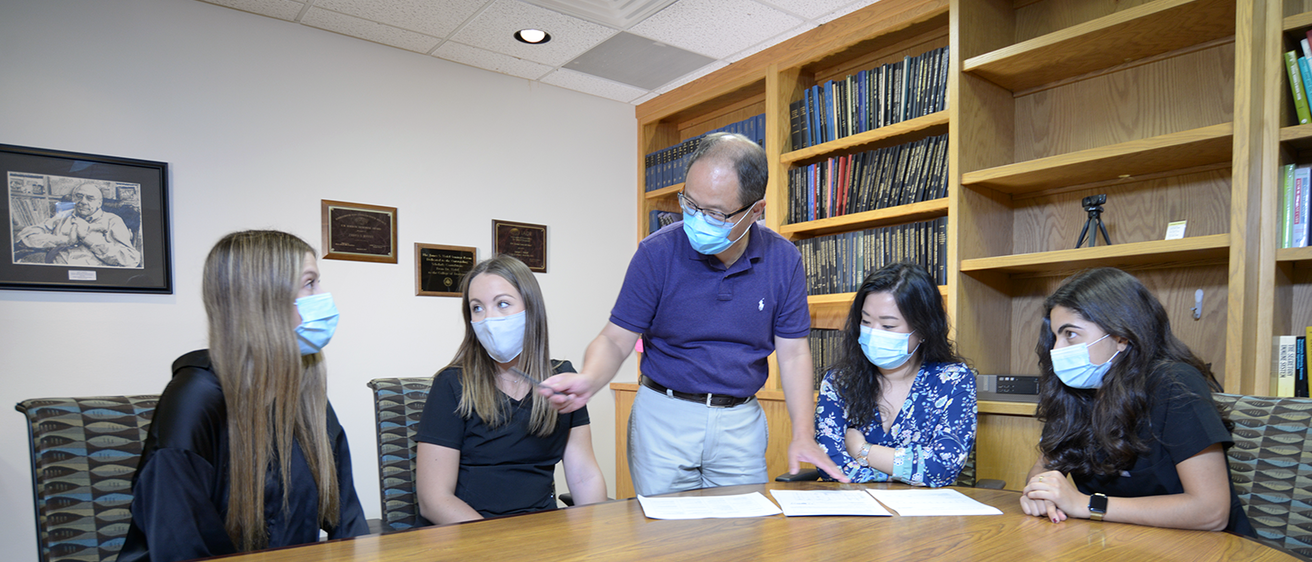Health care in the United States has historically and is still largely focused on prevention and treatment of specific diseases. This approach to health care, including dental care, creates challenges for patients living with serious illness. Palliative care is a specialized form of health care that attempts to meet the needs of the whole patient, taking into account each patient’s values and goals to make informed decisions about managing pain and making treatment decisions. Millions of patients receive palliative care each year, and the number is growing.
In Atul Gawande’s Being Mortal, he gives practical examples of how this might look. He speaks of one patient whose primary joy near the end of life was watching sports and eating ice cream. For patients like these, pulling a tooth, filling a cavity, or recommending a patient avoid sweets like candy and ice cream may cause unnecessary distress and sacrifice their overall wellbeing for short-lived dental benefits.
Xi Chen, associate professor in the Department of Preventive and Community Dentistry, is bringing these kinds of insights about palliative care to dentistry. The focus is on improving oral health awareness, relieving pain, and helping a patient live as well as possible for the rest of their life.
“Overall, our goal is to provide evidence for improving the quality of dental care for older adults with complex medical histories, with particular attention to patients suffering from terminal cancer, congestive heart failure, COPD, dementia or terminal illness,” Chen said. “We want to establish a new evidenced-based model of care for adults in palliative care.”
As is the case in medicine, while dentists often have some patients who fit these profiles, few have the training and expertise to meet the needs of this population. In addition, evidence-based dental practice guidelines are not available for these individuals. Therefore, it is common to use practices that are beneficial for the general population but accomplish little for older adults with serious illnesses. Likewise, it is common to think that dental care is not needed, since this population of patients might not need the same kinds of treatments and interventions that more commonly served populations need.
But these issues are correctable with training and the use of evidence-based practices.
For instance, Chen and his team found that many older adults with terminal illness suffer dry mouth, dental pain, oral infection, chewing difficulty and other oral health conditions. However, many of these patients are not able to get the dental care they need because of their medical appointments, feeling guilty for imposing on their caregiver, thinking dental care is a low priority, lack of transportation, and financial hardship. This is especially hard for patients with functional disabilities or cognitive impairment. The lack of timely dental treatment for these individuals may further impair their already compromised quality of life.
One of their findings was that it was important to get caregivers trained and involved in daily oral health care, since many of the nurses or other care providers felt unequipped to help their patients.
Another significant barrier is that oral health care has not, thus far, been integrated into daily palliative care practices, and physicians often treat oral health as an effect of aging, medications, or disease-directed treatment, which in turn results in patients and their caregivers not appropriately valuing oral health care. Yet, oral pain, inability to eat, and other related ailments can degrade the quality of life and many such patients have undiagnosed and untreated dental conditions.
In response, Chen and his team are attempting to make dental care one part of the comprehensive palliative care team, and the National Institutes of Health awarded them a $425,000 R21 exploratory grant for this purpose.
This particular research project will identify patients at the University of Iowa Palliative Care clinic, and conduct oral examinations and perform in-depth interviews with the patients and their caregivers to determine the patient’s oral health care needs, treatment goals, and care preferences.
“We can use this information to develop an oral health care plan tailored to our palliative care patients,” said Chen, “and help improve oral health awareness of the entire palliative care team—from physicians to nurses.”
In addition to this intervention, a palliative dental practice building in the University of Iowa Palliative Care clinic will also be developed to provide on-site assessment and consults for palliative care patients, and students and residents will perform rotations through this clinic.
The hope is that these evidence-based practices will reshape the practice and paradigm of dentistry for this population, and that it will be mutually beneficial for dentists and palliative care teams while helping older adults with serious illness live a good life.
Timothy Thomsen, director of the Palliative Care Clinic at UIHC, expressed his excitement about having dentistry as part of the palliative care team alongside pharmacy, nursing, and medicine. He said, “I suspect that the ‘dental disease screening tool’ and oral examinations will identify pathology and symptoms which contribute to patient suffering and detract from quality of life.”
For dentists, if you are interested in learning about these opportunities, reach out to your local hospital or nursing home. Take a continued education course focusing on dental care for older adults. And as patients get older, encourage caregivers to be active participants in daily oral health care routines supporting them with instructions for such care.
The print version of the original article is contained in the Fall 2021 Dental Link.
